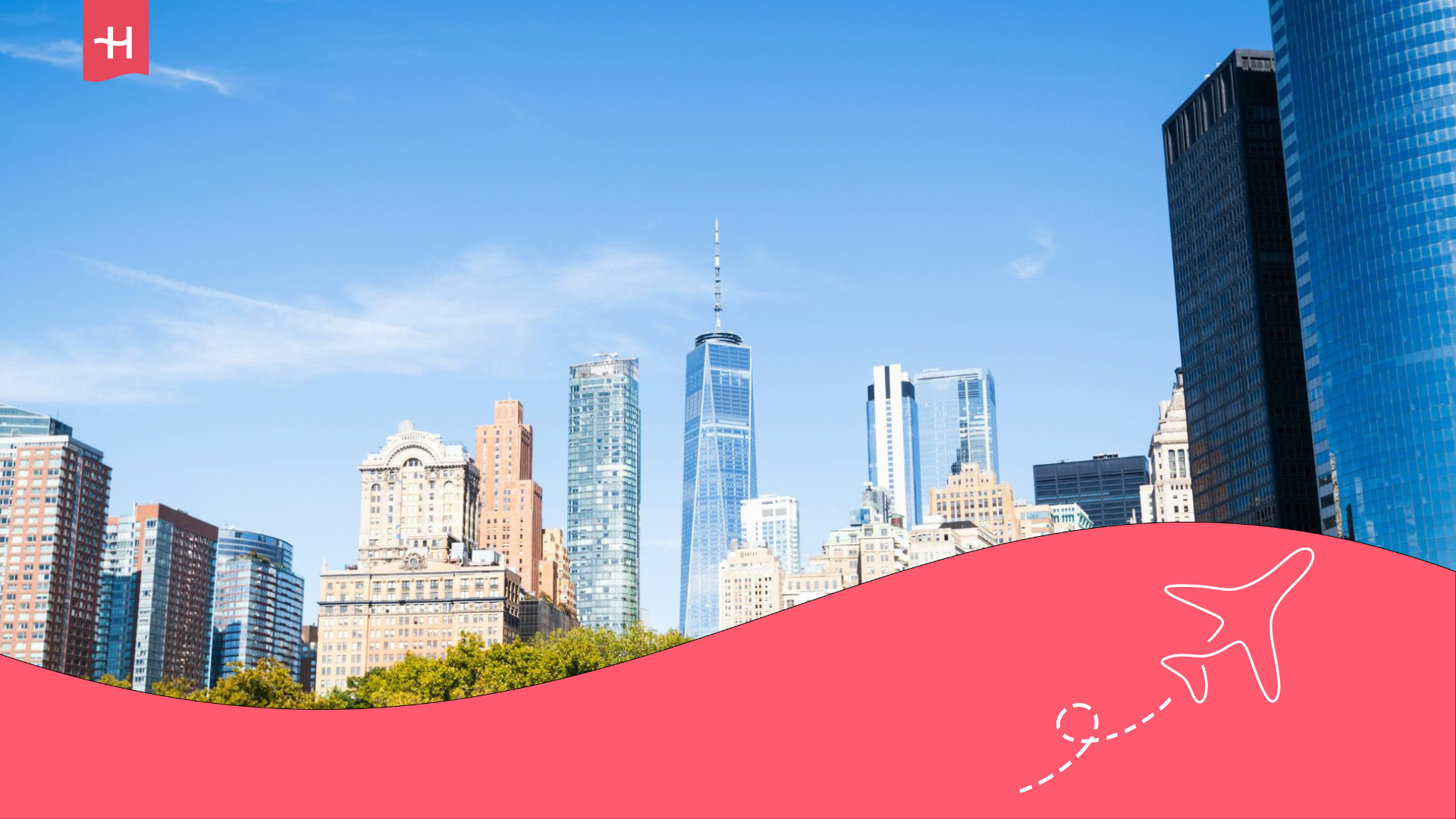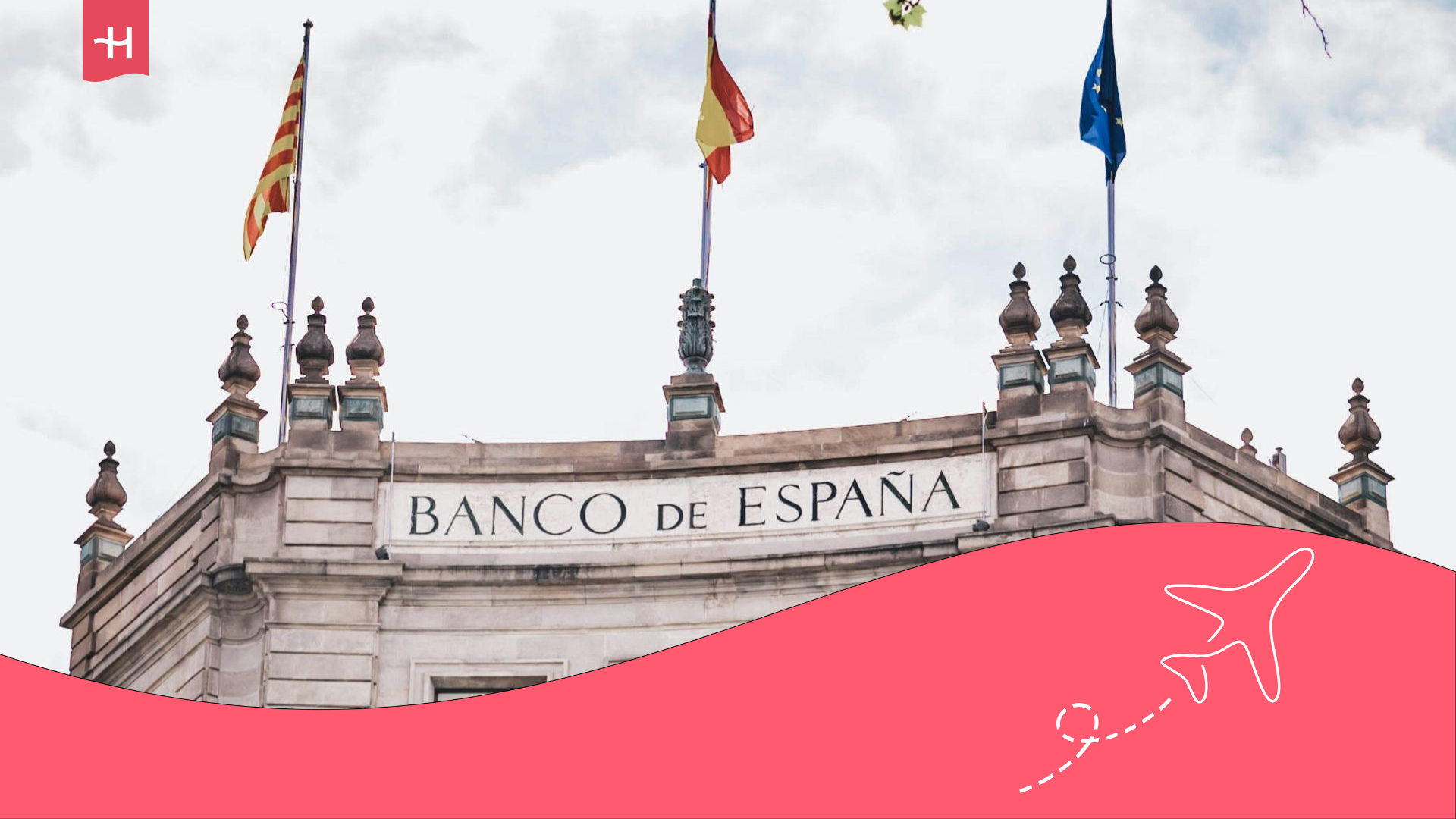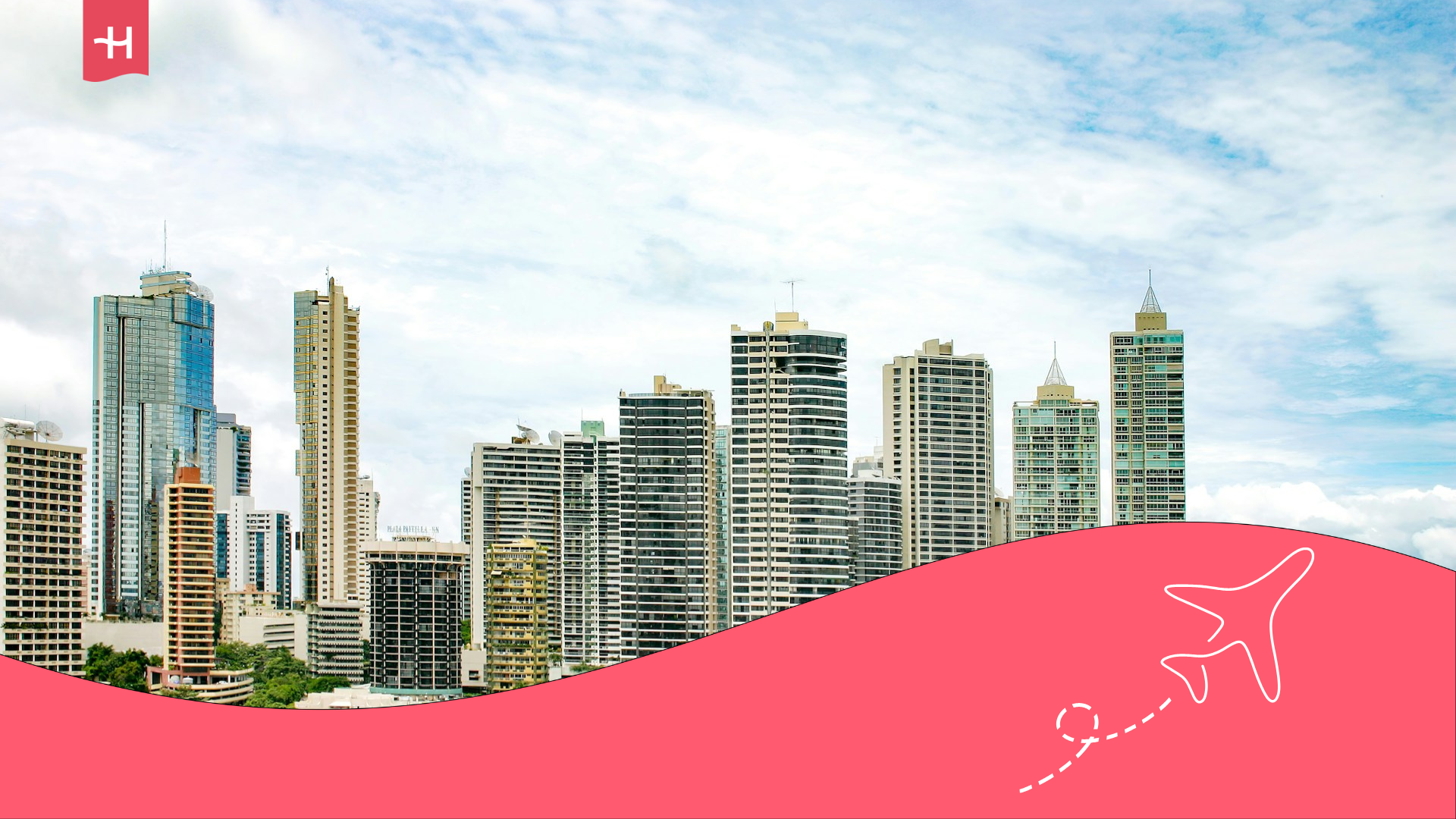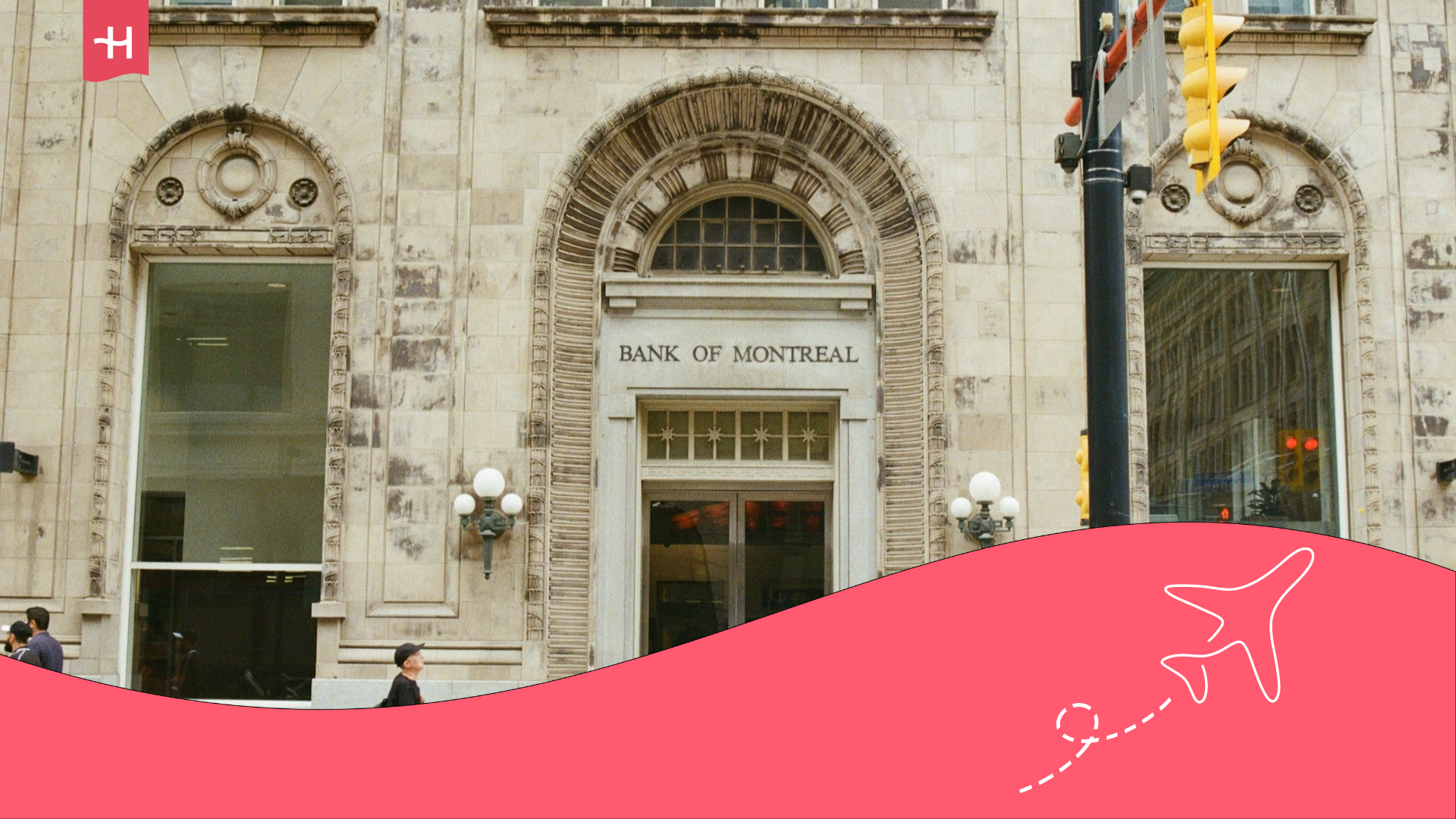Cost of living in New Zealand: Food, transport, and more
Are you considering living in Auckland or any other destination in New Zealand? We'll tell you what the cost of living is in New Zealand. With real prices!
The cost of living in New Zealand is among the highest in Oceania. Prices are similar to those in countries such as Canada or Australia, and doing the weekly shop can be up to 30% more expensive than in France or Spain. If you’re thinking about spending a long period of time in New Zealand—or even moving permanently—it’s essential to plan your budget carefully.
To help you do just that, we’ve gathered real data on the cost of accommodation, food, transport, and other essentials such as leisure, health insurance, and internet. Would you like to calculate how much you might spend per month? Let’s find out together. Join us to find out.
1. Average cost of accommodation in New Zealand
One of the best ways to understand a country’s cost of living is by looking at housing prices. In New Zealand, accommodation is generally not cheap. However, according to figures from media outlets, search platforms, and specialist websites, rents are around 12% lower than in the United States. They also tend to be cheaper than in major European cities such as London or Paris. So, how much does it actually cost to rent in different parts of the country? Here are some examples:
1.1. Furnished apartment rentals
Rental costs vary significantly between cities, as in any other country. For instance, in Christchurch, Hamilton, or Dunedin, you can find rents that are 20–30% cheaper than in larger cities such as Auckland and Wellington. Other factors also influence the price, including the property’s location within the city or town, and the type of home
Here are some concrete figures we found from rental platforms:
- One-bedroom apartment in central Auckland: Approx. NZD 2,500 ($1,250 | €1,415) per month.
- One-bedroom apartment in outer suburbs: In areas such as Manukau or West Auckland, prices drop to around NZD 2,000 ($980 | €1,130) per month.
- Two-bedroom apartment in central Wellington: Between NZD 3,000 and 3,500 ($1,470–1,720 | €1,660–1,930) per month.
- Two-bedroom apartment in Christchurch or Hamilton: More affordable options starting from NZD 2,200 (£1,080 | €1,245) per month.
Note: In New Zealand, landlords usually require a bond equivalent to four weeks’ rent. This is a significant upfront cost, so keep it in mind when planning your budget.
1.2. Co-living spaces
For temporary stays, a co-living arrangement might be more suitable. These are becoming increasingly common across the country. Prices vary depending on the location and the services included in the package. To help you decide if co-living is more cost-effective than renting a flat, here are some popular options:
- Haka Lodge Auckland: From NZD 1,500 ($735 | €850) per month, with shared spaces and cleaning service.
- The Coh Auckland: From NZD 2,200 ($1,080 | €1,245) per month, including coworking spaces.
- Hatch Living Wellington: From NZD 2,000 (£980 | €1,130) per month, with a gym and coworking area in the building.
Need something cheaper? In smaller cities such as Christchurch or Dunedin, prices can be 20–30% lower.
1.3. Airbnb and Hotels
If you’re planning a shorter stay, hotels or Airbnb might be a better option. Prices vary not only by city but also by the time of year. Here are some examples based on listings from hotel search engines and Airbnb:
- Entire apartment in Auckland: Between NZD 3,000 and 4,500 ($1,470–2,210 | €1,730–2,590) per month.
- Apartment in Wellington: Between NZD 2,500 and 3,800 ($1,230–1,860 | €1,440–2,190) per month.
- Flat in Christchurch or Dunedin: Monthly rates drop to NZD 1,800–2,800 ($880–1,370 | €1,040–1,620).
- Hotels in good locations:
- Jucy Snooze Auckland – In the city centre; from NZD 145 ($70 | €85) per night.
- Willis Wellington Hotel – In the Te Aro district; from NZD 165 ($80 | €95) per night.
- BreakFree on Cashel Christchurch – Central location; from NZD 140 ($68 | €80) per night.
2. Food costs in New Zealand
Another good indicator of the cost of living in a country is food. You can quickly gauge how expensive daily life is by looking at restaurant menus or supermarket catalogues. We can already tell you that doing a basic grocery shop in New Zealand costs more than in countries that are not exactly cheap, such as Australia or Canada. In fact, according to a study by Edith Cowan University comparing food prices in Australia, the United Kingdom, Ireland, and New Zealand, the Kiwi nation turned out to be the most expensive country for grocery shopping.
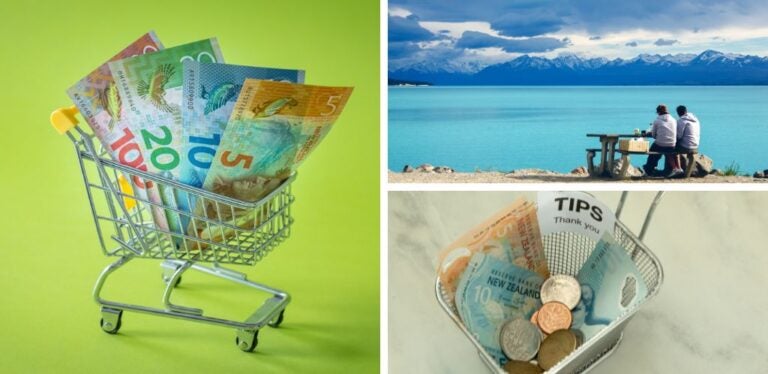
2.1. Cost of Living in New Zealand: Food and Groceries
The most popular supermarket chains in New Zealand are PAK’nSAVE, Countdown, and New World. Prices vary by store and location, but on average you can expect to pay:
- Milk (1 litre): NZD 3.00 ($1.80 / €1.70)
- Eggs (dozen): NZD 10.80 ($6.50 / €6.10)
- Chicken breast (1 kg): NZD 15.90 ($9.50 / €9.00)
- Beef (1 kg): NZD 21.50 ($12.90 / €12.20)
- Tomatoes (1 kg): NZD 8.90 ($5.30 / €5.00)
- Cheese (1kg): NZD 13.70 ($8.20 / €7.80)
- Pasta (500 g): NZD 1.60 ($0.95 / €0.90)
- Rice (1 kg): NZD 3.10 ($1.85 / €1.75)
- Local beer (0.5 l): NZD 5.10 ($3.05 / €2.90)
- Ground coffee (250 g): NZD 9.00 ($5.40 / €5.10)
- Chocolate (100 g): NZD 3.00 ($1.80 / €1.70)
2.2. Restaurant prices
Now let’s see what you’ll find if you go out to eat. Going out for food in New Zealand isn’t particularly cheap, but you will find options to suit most budgets. Here are some reference prices:
- Breakfast: A coffee with toast or a pastry at cafés such as Starbucks or Gloria Jean’s Coffees costs between NZD 5.50 and 8.00 ($2.65–3.85 | €3.10–4.50). More filling breakfast: Eggs with toast and coffee for around NZD 12.00 ($5.75 | €6.80).
- Lunch: A set menu at a local restaurant ranges from NZD 10.00 to 15.00 ($4.80–7.20 | €5.70–8.50). Fast food: At places like McDonald’s, BurgerFuel, or KFC you’ll pay around NZD 16.00 ($7.70 | €9.10).
- Dinner (mid-range): A three-course dinner for two at a mid-range restaurant costs about NZD 127.00 ($61.00 | €72.50). High-end dining: At upscale restaurants, prices can exceed NZD 200.00 ($120 | €114.00) per person.
Street food and night markets: Local dishes for under NZD 10.00 ($6.00 | €5.70).
3. Transport Costs in New Zealand
How expensive is it to get around New Zealand? This is another key factor to consider when calculating your monthly budget. Unlike food or housing, transport is relatively affordable compared to other countries. At the very least, there are cheap options for getting around. Here are some updated 2025 prices to help you estimate your spending:
3.1. Public transport: Buses, trains, and passes
Public transport in New Zealand is efficient and punctual. Prices are not the cheapest, but passes and travel cards can help you save money on regular journeys:
- Single bus ticket in Auckland: NZD 3.84 ($2.50 / €2.30).
- AT HOP card (Auckland): Costs NZD 10 ($6.50 | €6.00) and provides discounted fares
- Monthly transport pass: From NZD 215 ($140 | €130)
3.2. Cost of living in New Zealand: Uber and taxis
Prefer something more private and comfortable? You can use taxis, Uber, or similar services in New Zealand’s cities. Their apps and websites allow you to estimate fares. For example:
- Base taxi fare in Auckland: NZD 3.50 ($2.30 | €2.10)
- Uber fare per kilometre: NZD 1.50 ($1.00 | €0.90)
- 10 km ride with Uber: Around NZD 15–20 ($9.75–13.00 | €9–12)
3.3. Bike rentals
If you prefer a greener alternative, larger cities offer shared bike rental services. Typical prices are:
- 24-hour rental: NZD 1 ($0.65 / €0.60).
- Monthly subscription: NZD 20 ($13 / €12).
- Annual subscription: NZD 150 ($97 / €90).
3.4. Private Vehicles
Thinking about buying a car in New Zealand? If so, there are several costs you’ll need to factor in. Besides the price of the vehicle itself, you’ll also have to pay for insurance and fuel. Here are some reference prices:
- New car (Toyota Corolla 2025): NZD 30,000 ($19,500 | €18,000)
- Basic vehicle insurance: Between NZD 800 and 1,200 per year ($520–780 | €480–720)
- Petrol (per litre): NZD 2.90 ($1.80 | €1.70)
- Electric car charging: Prices vary by provider, but home charging costs around NZD 0.25 per kWh ($0.16 | €0.15)
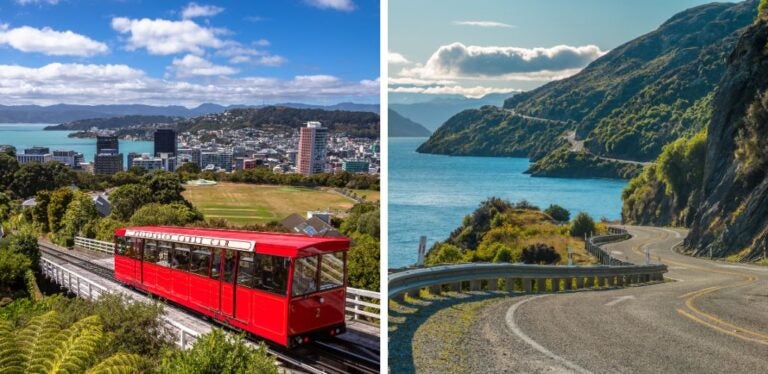
4. Cost of living in New Zealand: Healthcare
Citizens and permanent residents are entitled to free or subsidised medical care in New Zealand. However, if you are in the country on a temporary visa, you will need to cover the full cost of medical services and medication. Here are some typical prices you might face:
- General doctor’s consultation: NZD 50–90 (€30–55) per visit in private clinics
- Specialist consultation: From NZD 150 (€90), depending on the specialty
- Dental check-up or cleaning: NZD 80–150 (€50–90)
- Appendicitis surgery: NZD 10,000–18,000 (€5,500–9,900) in private hospitals
- Paracetamol (20 tablets): NZD 2–4 (€1.20–2.30)
- Ibuprofen 600 mg (40 tablets): NZD 3–5 (€1.80–3.00)
- Antihistamines: NZD 5–8 (€2.90–4.60)
4.1. Private health insurance in New Zealand
As you can see from the prices above, healthcare services in New Zealand are not cheap. That’s why it’s always advisable to take out international health insurance that will cover your medical bills in case you need it. Prices vary considerably depending on the insurance company you choose and the level of coverage you require. However, to give you a rough idea:
- Basic health insurance: From NZD 4,000 per year (around €2,300).
- Comprehensive health insurance: Can exceed NZD 12,000 annually (around €6,900).
5. Internet and phone plan prices in New Zaeland
New Zealand has a well-developed telecommunications infrastructure. There are several providers operating across the country, so you’ll find plenty of options whether you’re looking for a home broadband plan or a mobile contract. Prices vary depending on the speed and the provider you choose.
5.1. Fixed internet: prices and speeds
The main internet providers in New Zealand are Spark, One NZ (formerly Vodafone), and 2degrees. Here are their 2025 monthly rates:
- Spark (1 Gbps): NZD 95 ($59 | €55) per month.
- One NZ (900 Mbps): NZD 90 ($56 | €52) per month.
- 2degrees (1 Gbps): NZD 85 ($53 | €49) per month.
5.2. Mobile plans: Calls and data
Would you rather sign up for mobile data so you always have a connection? Some examples of prepaid and contract plans in New Zealand:
- Spark: 1.5 GB + 200 minutes NZD 29 ($18 | €17) monthly.
- One NZ: 10 GB of data and unlimited calls for NZD 60 ($37 | €34) per month.
- 2degrees: 2.5 GB + 300 minutes NZD 30 ($19 | €17) monthly.
5.3. Global internet plans
If your travel itinerary includes New Zealand but also multiple other destinations, a compelling option to stay connected is using Holafly’s global plans. They work via a monthly subscription and cover over 170 countries. You won’t have to worry about renewing or swapping SIMs at each destination — the eSIM works seamlessly, even as you cross borders. Here are the prices you should consider if you plan to go with this solution:
- 25 GB data: €49.90 monthly.
- Unlimited data plan: €64.90 monthly.
With Holafly you can also get unlimited data via a New Zaeland eSIM. Choose the days you need, keep your SIM, and avoid roaming costs. best esim internet for digital nomads
Important: If you are a frequent traveler and want to stay connected without worrying about expensive roaming or looking for a new SIM at every destination, Holafly’s subscription plans are for you. With a single eSIM, enjoy internet in more than 170 countries for a fixed price and no surprises on your bill. Travel without limits and connect easily and securely! 🚀🌍

6. Cost of living in New Zealand: Leisure
We can’t finish this review of New Zaeland living costs without mentioning leisure. Although New Zealand offers plenty of free activities — like hiking trails or visits to places such as the Museum of New Zealand Te Papa Tongarewa in Wellington — there are also experiences and attractions that come at a cost. But how expensive are they, really? Generally speaking, prices are not excessively high compared to other Western countries. Here are some popular examples to give you an idea:
- Cinema ticket: 20- 23 NZD ($12-14 | €11-13).
- Theatre or musicals in Auckland or Wellington: NZD 50–150 (approx. $30–90 | €28–85)
- Skyline Queenstown (gondola + activities): Around NZD 46 (approx. $28 | €26)
- Auckland Zoo: General admission NZD 24 (approx. $14 | €13)
- Wellington Zoo: Admission NZD 23 (approx. $14 | €13)
- SEA LIFE Kelly Tarlton’s Aquarium in Auckland: 39 NZD ($23 | €22).
- Hobbiton Movie Set Tour: NZD 89 (approx. $52 | €49)
- Waitomo Glowworm Caves: 55 NZD ($32 | €30).
- Te Papa Museum in Wellington: Free entry
- Nau Mai Rā Cultural Experience (Māori culture in Rotorua): From NZD 120 (approx. $70 | €65)
- Milford Sound Cruise (fiord tour): Between NZD 90–150 (approx. $55–90 | €50–85)
- Rhythm & Vines Festival (Gisborne): From NZD 130/day (approx. $75 | €72)
- WOMAD Festival (New Plymouth): General admission from NZD 120 (approx. USD 70 | EUR 65)
- Sunsetter Festival (Devonport Waterfront): From NZD 90 (approx. USD 52 | EUR 49)
- Cable TV (basic Sky TV package): 25 NZD ($15 | €14).
- Netflix (standard plan): 16.99 NZD ($10 | €9.50).
And with this section on entertainment and leisure costs, we wrap up our overview of the cost of living in New Zealand in 2025. As you’ve probably noticed, New Zealand is not one of the cheapest places to live in the world. However, it’s also not as expensive as countries like the United States, Australia, or Canada. That said, before making the move, it’s a good idea to sit down and run the numbers carefully. If you’re on a tight budget, there may be other destinations that better suit your financial situation.





 Language
Language 


















 No results found
No results found


